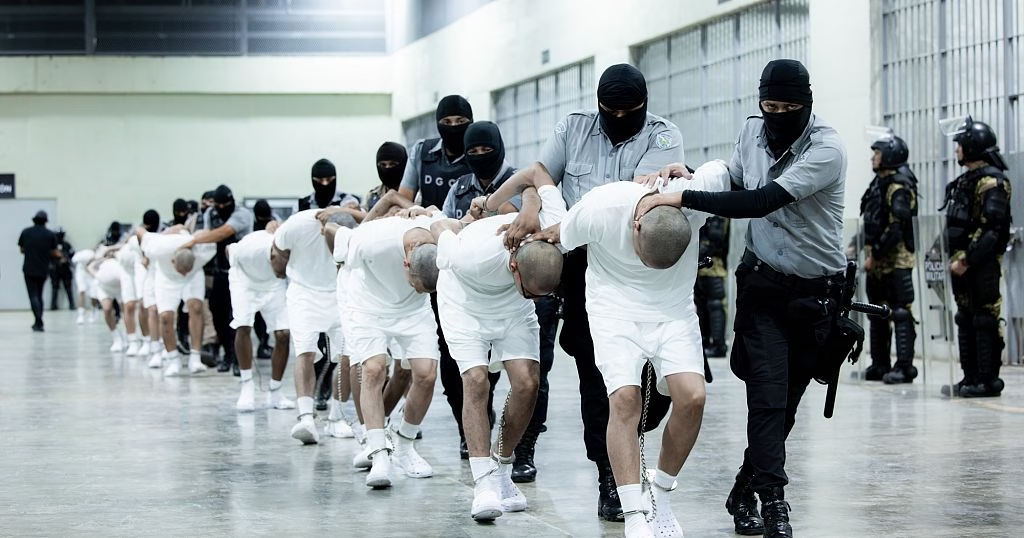
U.S. District Judge James E. Boasberg’s order, issued on Saturday, temporarily halted the deportations. However, lawyers informed the court about two flights already in progress, one bound for El Salvador and one for Honduras. Although Boasberg verbally directed the planes to turn back, this command was not included in his written order and thus they were not recalled.
In a statement on Sunday, White House press secretary Karoline Leavitt dismissed claims of non-compliance with court orders, stating that the order, with no legal basis, came after the removal of “terrorist TdA aliens” from U.S. territory had already taken place.
In a court filing on Sunday, the Department of Justice, which has appealed Boasberg’s decision, stated that if the decision stands, they will not use the blocked Trump proclamation for further deportations.
Trump, speaking to reporters on Air Force One, sidestepped questions about the alleged violation of a court order, but defended the deportations, characterizing the deportees as “bad people.” He also invoked wartime powers to describe the situation as an “invasion” due to the presence of criminal migrants.
Various political figures, including Salvadoran President Nayib Bukele, Secretary of State Marco Rubio, and White House communications director Steven Cheung, expressed support for the administration’s actions. Bukele agreed to house the immigrants in Salvadoran prisons at a cost, and Rubio highlighted the agreement to hold those deemed as “alien enemy members” of Tren de Aragua, a gang from Venezuela.
Legal experts, like Georgetown University Law Center professor Steve Vladeck, criticized the government’s move, arguing that while the verbal order to turn the planes around was not legally binding, it reflectively undermined the court’s authority and may set a precedent for future court rulings to be overly specific to prevent government loopholes.
The deportations were facilitated by Trump invoking the Alien Enemies Act of 1798, a measure that has been employed sparingly in U.S. history, including during the War of 1812 and World Wars I and II. This act grants the President broad powers to detain or deport foreigners during times of war, bypassing typical legal protections.
Venezuela’s government denounced the use of this act, likening it to historic human rights abuses such as slavery and the Nazi era.
Tren de Aragua is a gang that emerged from the turmoil of Venezuela’s prison systems and became associated with the mass migration of Venezuelans seeking better conditions. The Trump administration has not provided specific evidence linking the deportees to this gang or confirmed any criminal activities in the United States.
Details of the deportation process were captured in a video by the Salvadoran government, showing the men being offloaded from planes, shuffled onto buses surrounded by riot gear-clad officers, and transported to prison facilities while in shackles.
The immigrants were taken to the notorious CECOT facility, a central part of Bukele’s initiative to combat violence in El Salvador through strict law enforcement measures and the curtailment of civil liberties.
The decree declaring Tren de Aragua an invading force was signed by the President on Friday night but not made public until Saturday afternoon. Before this, immigration lawyers noticed Venezuelans, typically protected from deportation under immigration law, being prepared for deportation flights, leading to legal challenges to halt these actions.
In the lawsuit that resulted in the temporary halt of deportations, lawyers argued on behalf of five Venezuelans in Texas, who feared wrongful accusations of gang membership. The invocation of the Alien Enemies Act potentially allows for anyone to be declared a member of Tren de Aragua and face removal without opportunity for defense.
Judge Boasberg extended the preliminary injunction to include all individuals in federal custody who could be affected by the act, considering the unprecedented use of the law outside of a Congressionally declared war. He acknowledged that once deported, it would be difficult to address potential constitutional violations in court.
The temporary bar on deportations lasts up to 14 days, during which time the individuals remain in federal custody. Judge Boasberg has scheduled a hearing on Friday to hear further arguments in the case, emphasizing the constitutional right of these individuals to contest their deportations in court.







